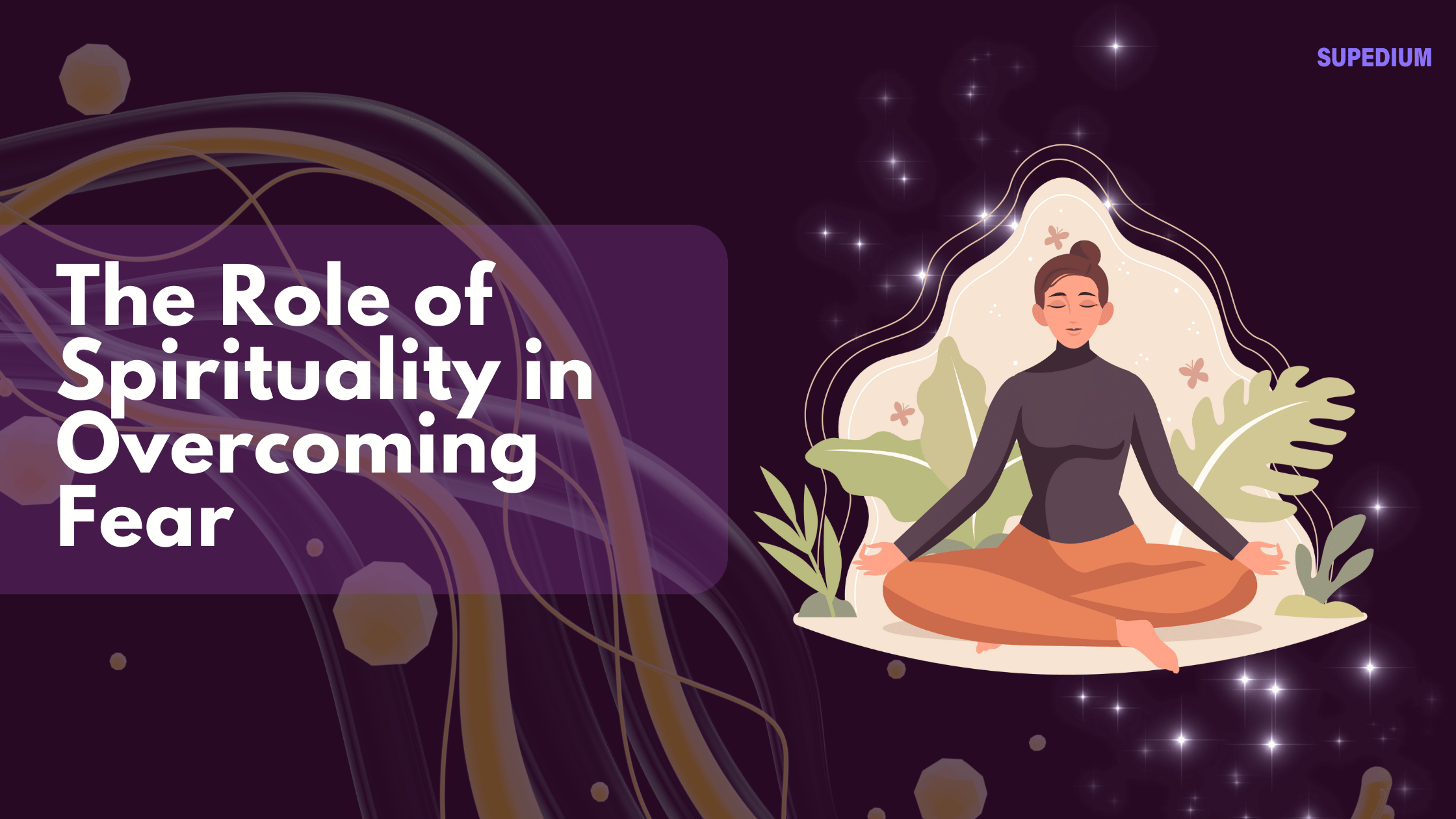Table of Contents
![]()
Introduction
Fear is a universal experience, a primal emotion that can serve as both a warning system and a source of debilitating anxiety. While fear can alert us to danger, it can also prevent us from fully engaging with life. Spirituality, often seen as a pathway to deeper meaning and connection, can offer powerful tools for overcoming fear. This article explores how spirituality can serve as a transformative force, helping individuals manage and transcend their fears.
Understanding Fear
The Nature of Fear
Fear is an instinctual response, deeply rooted in our biology and evolutionary history. It activates the body’s fight-or-flight response, preparing us to respond to threats. However, in modern life, fear can manifest in various forms, such as existential dread, social anxiety, or fear of failure, often leading to significant psychological distress.
Common Sources of Fear
Fear can stem from multiple sources. Past traumas, whether physical or emotional, can leave lasting imprints. Uncertainty about the future, societal expectations, and the pressures of daily life can also contribute to a pervasive sense of fear. Understanding the origins of our fears is the first step toward addressing them.
Spirituality: A Framework for Understanding
Components of Spirituality
Spirituality encompasses a wide range of beliefs and practices that foster a sense of connection to something greater than oneself. Key components include a connection to a higher power, a sense of purpose, and the cultivation of inner peace through practices such as meditation and mindfulness.
Spiritual Practices
Engaging in spiritual practices can provide a sanctuary from fear. Techniques such as meditation promote mindfulness, allowing individuals to stay present and reduce anxiety. Prayer can offer comfort, while community involvement can enhance feelings of belonging and support.
The Connection Between Spirituality and Fear
Spirituality as a Coping Mechanism
Spirituality provides a framework for coping with fear. It fosters resilience by promoting adaptability and encouraging individuals to view challenges from a broader perspective. When faced with fear, spirituality can shift the focus from the fear itself to a larger context, such as personal growth or a sense of purpose.
Reducing Anxiety Through Spiritual Practices
Spiritual practices like meditation have been shown to have calming effects. Mindfulness encourages individuals to observe their thoughts and feelings without judgment, reducing the intensity of fear. Similarly, prayer can serve as a source of reassurance, helping individuals feel supported and connected.
Building a Support Network Through Spiritual Communities
Spiritual communities can be invaluable in the journey of overcoming fear. Sharing experiences and fears with others fosters a sense of solidarity and understanding. Engaging with a community provides insights from diverse journeys and cultivates collective resilience.
Case Studies and Anecdotes
Personal Stories of Overcoming Fear
Many individuals have turned to spirituality to navigate their fears. For instance, someone who faced anxiety due to a traumatic experience found solace in meditation and the supportive environment of a spiritual group. Their journey highlights how spirituality can provide a safe space for healing.
Psychological Studies Linking Spirituality to Reduced Anxiety
Research supports the connection between spirituality and mental health. Studies have shown that individuals with strong spiritual beliefs tend to experience lower levels of anxiety. These findings suggest that spirituality can serve as an effective coping mechanism in managing fear.
Practical Applications
Integrating Spirituality into Daily Life
To harness the power of spirituality, individuals can develop personal spiritual practices. This may include daily meditation, journaling, or engaging in nature. These practices encourage self-reflection and can help confront fears in a supportive manner.
Building a Supportive Spiritual Community
Finding or creating a supportive community is crucial. Engaging in group activities, such as prayer circles or retreats, can enhance spiritual growth and foster a sense of belonging. The shared experience of confronting fears can strengthen bonds and create a collective sense of purpose.
Challenges and Limitations
Potential Pitfalls of Spirituality in Fear Management
While spirituality can be a powerful tool, it is essential to recognize its limitations. Some individuals may engage in spiritual bypassing, avoiding reality by focusing solely on spiritual beliefs. Misinterpretations of spiritual teachings can also lead to confusion and disappointment.
Balancing Spirituality with Practical Solutions
It is vital to balance spirituality with practical approaches to fear management. While spiritual practices can be helpful, they should not replace evidence-based therapies or counseling. Integrating spiritual insights with psychological tools can create a more comprehensive approach to overcoming fear.
Conclusion
Spirituality offers a unique and powerful avenue for overcoming fear, fostering resilience, and promoting mental well-being. By cultivating spiritual practices and engaging with supportive communities, individuals can confront their fears with greater confidence and clarity. As we explore our spiritual paths, we may find not only solace from fear but also a deeper understanding of ourselves and our connection to the world around us.
Share This





Be the first to comment